
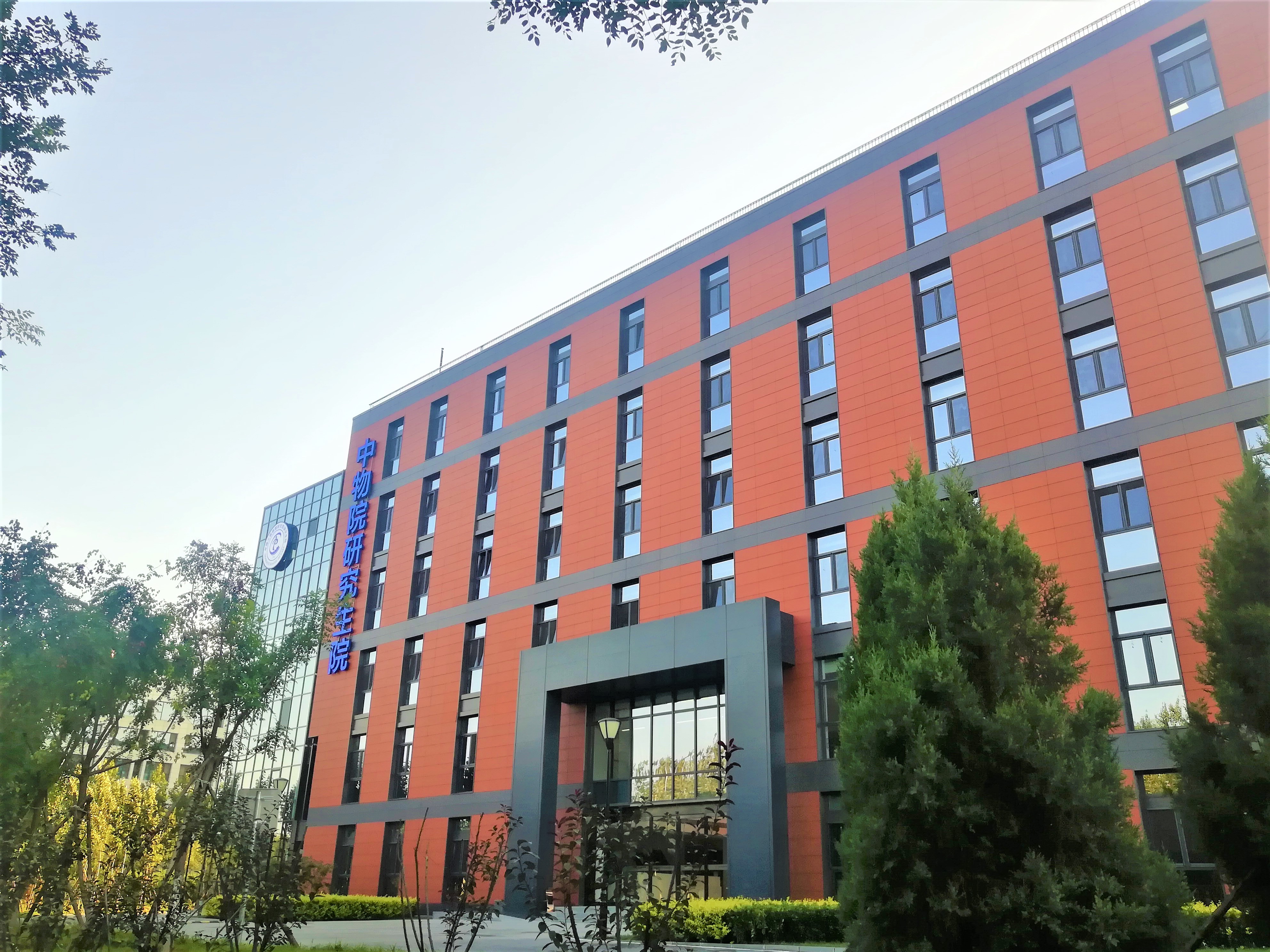
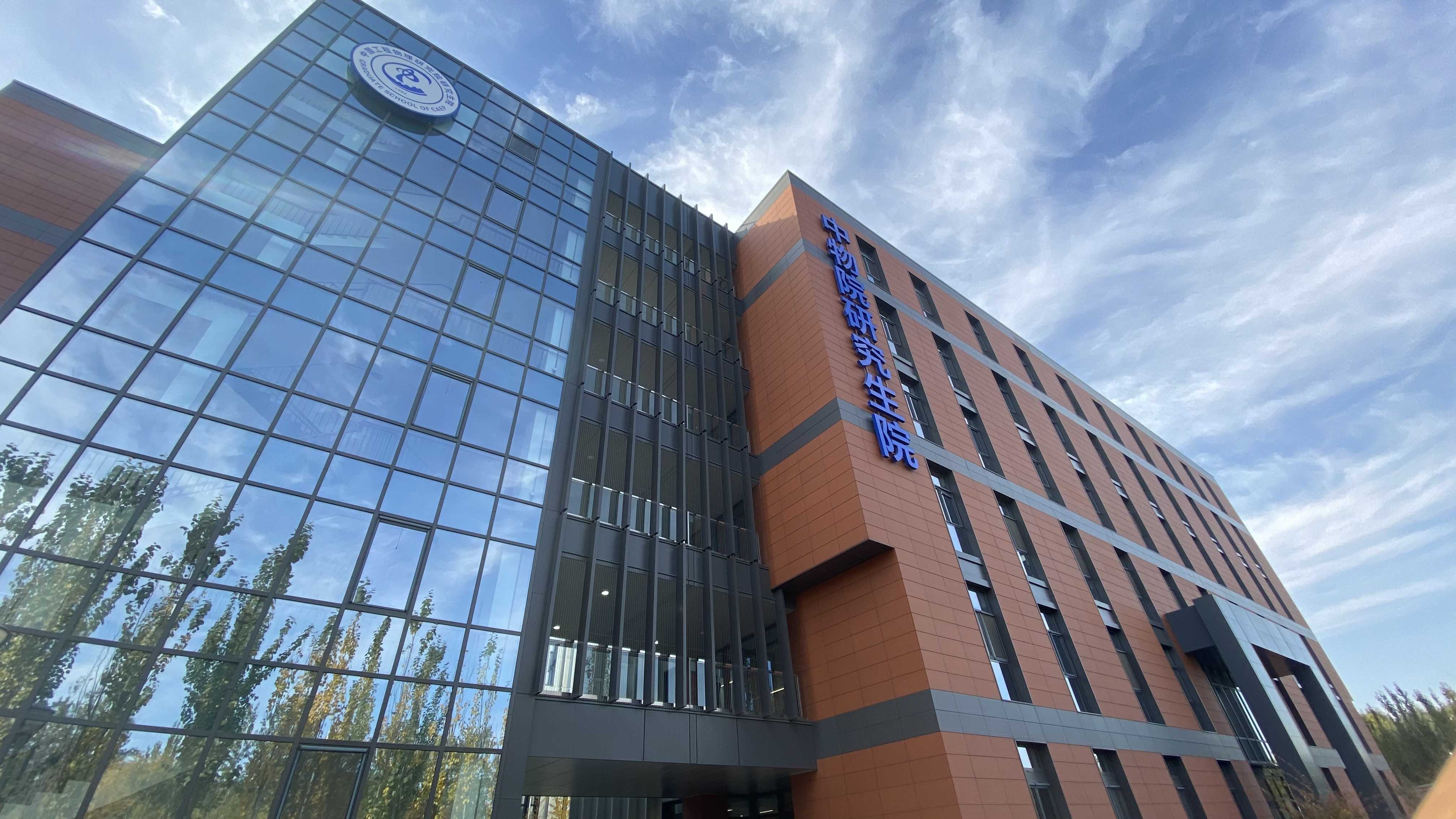
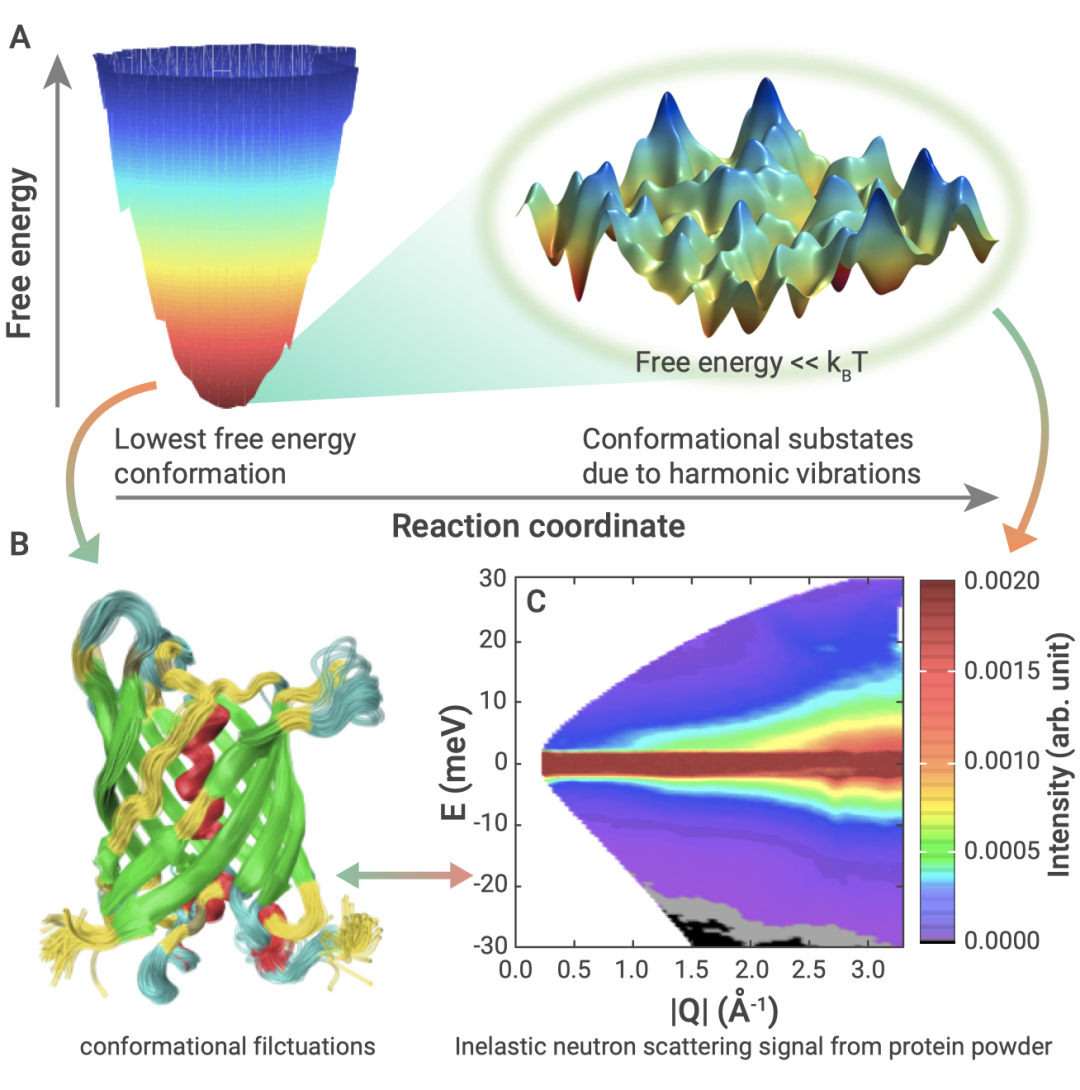

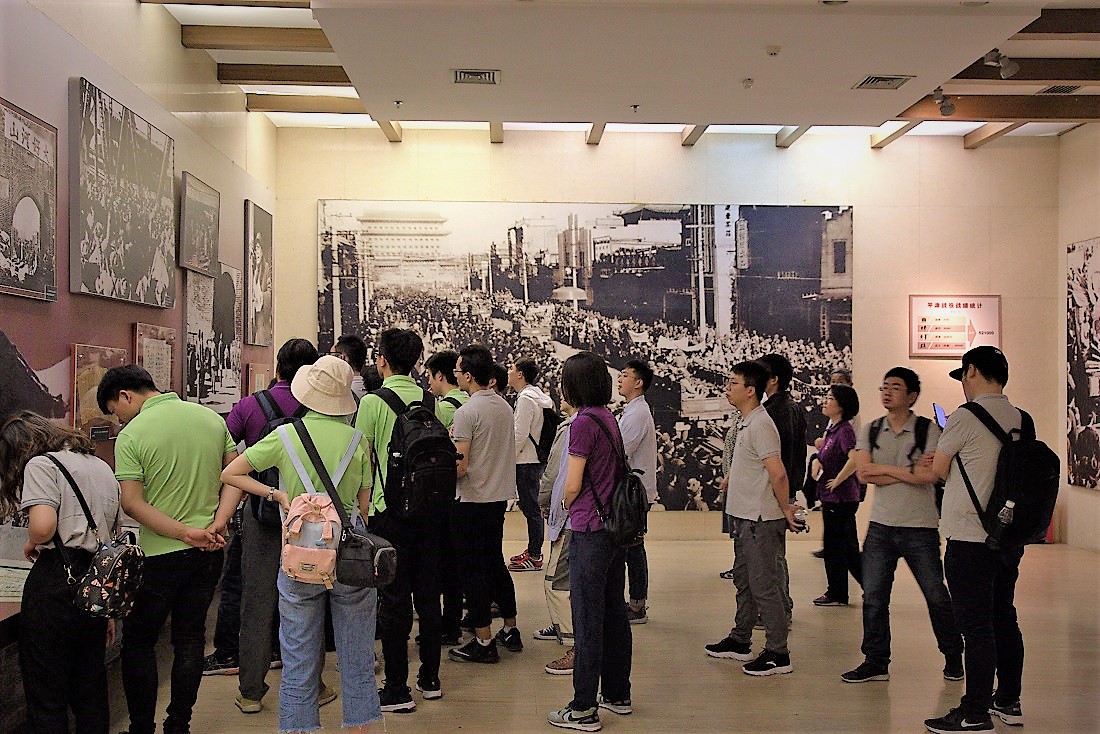









From August 10th to 19th, the Energy Physics Advanced Seminar and Energy Physics Science Forum, hosted by the Graduate School of the China Academy of Engineering Physics (GSCAEP) and the Beijing Computational Science Research Center, were held in Beijing. Over 30 renowned experts and scholars in the field of energy physics, including Academician Xiangwan Du of the Chinese Academy of Engineering, Academician Zhao Jindong of the Chinese Academy of Sciences, Academician Sun Changpu of the Chinese Academy of Sciences, and Academician Minxing Luo, attended the conference.
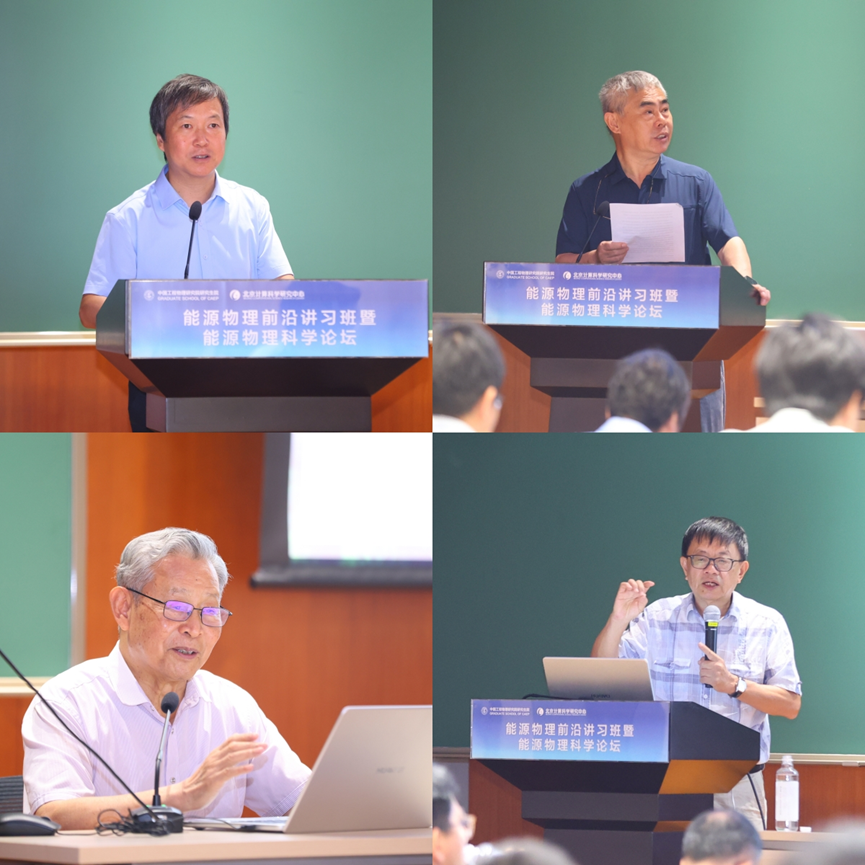
The opening ceremony of the seminar, the Energy Physics Science Forum, was presided over by Libin Fu, Vice President of the Graduate School of CAEP. Academician Changpu Sun delivered a welcoming speech, welcoming guests, young scholars, and participants. Academician Xiangwan Du and Academician Jindong Zhao gave keynote presentations titled "Discussion on the Source of Energy" and "Light Absorption and Conversion in Photosynthesis," respectively.
This seminar received financial support from the National Natural Science Foundation's Theoretical Physics Special Fund. It featured 30 invited speakers from 20 renowned domestic universities and research institutions, including Peking University, Beihang University, Beijing Institute of Technology, Beijing Normal University, Fudan University, Southern University of Science and Technology, Nanjing University, Xiamen University, Suzhou University, Northwestern University, Institute of Physics, Chinese Academy of Sciences, Institute of Botany, Chinese Academy of Sciences, Renmin University of China, and more. The seminar covered five themes: photosynthesis, energy materials, dynamics detection in energy materials, nuclear energy development, and basic thermodynamics in energy physics. Speakers shared their research achievements and insights in the field of energy physics, aiming to collectively explore how to advance energy technology.
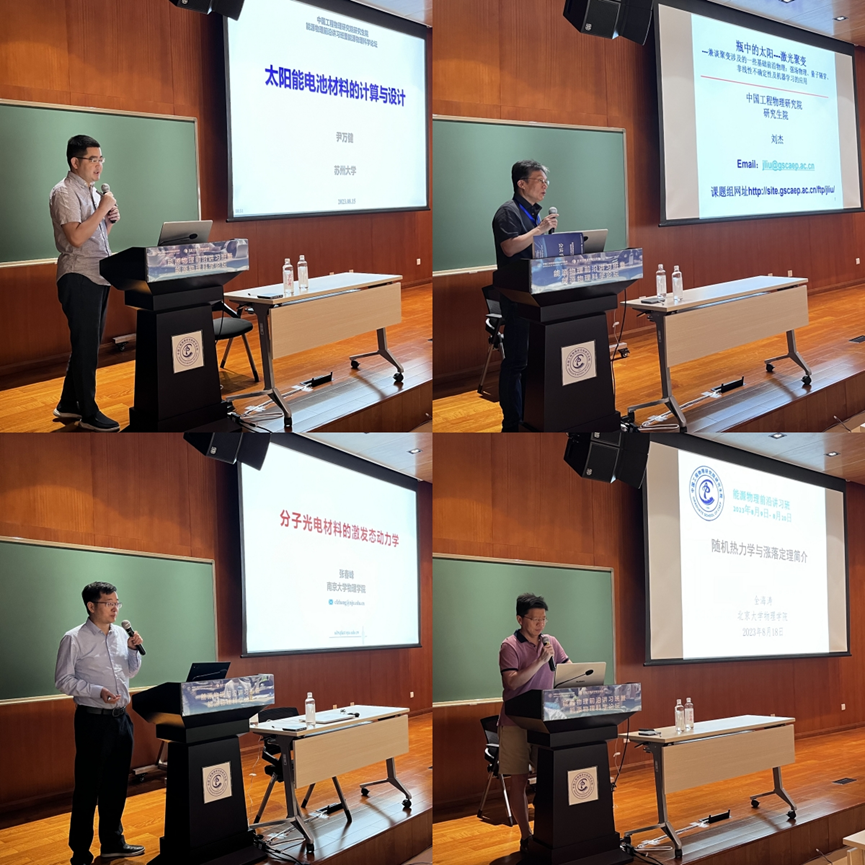
The event attracted over 60 young scholars and students from 34 research units, including the Beijing Graphene Research Institute, Chongqing University, Donghua University, Zhejiang University, China University of Mining and Technology, and more, for offline participation. The entire event was also broadcast online, with over 20,000 online participants.
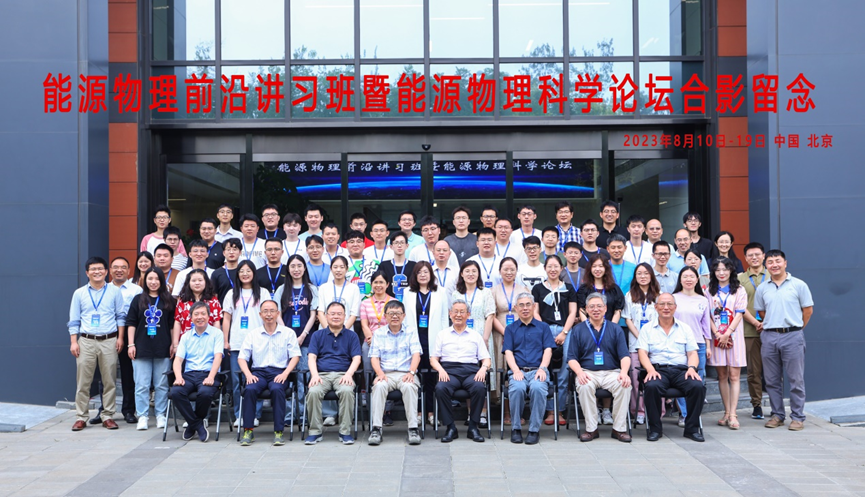
The seminar successfully concluded on August 19th. With 30 captivating and diverse presentations and ten days of interdisciplinary discussions, it facilitated the collision and inspiration of academic ideas. This event provided an opportunity and platform for the academic community to engage in extensive exchanges and cooperation in the field of energy physics. In the future, GSCAEP will continue to focus on the development of energy physics. Taking this seminar as an opportunity, it will continue to organize and hold academic exchange activities in specific topics such as photosynthesis, nuclear energy development, energy materials, etc., to promote the development of the energy physics discipline. The goal is to assist the academic community in enhancing energy supply chain security and stability, promoting a green and low-carbon transformation of energy production and consumption methods, and improving the modernization level of the energy industry chain. This will contribute to the construction of China's modern energy system.
